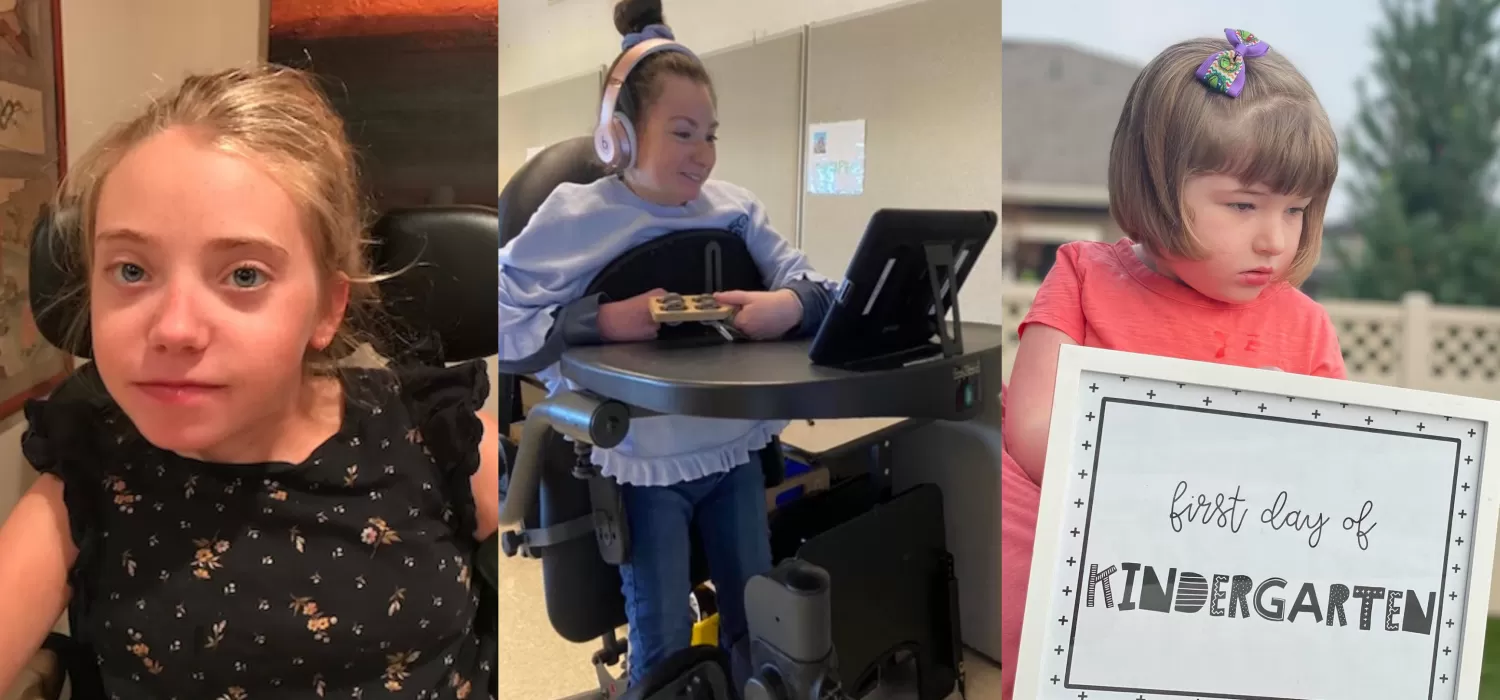Communication Tips for the New School Year

It is that time of the year again! School is starting back up for children across the country. Sending a typically developing child off to school can be challenging enough, but sending a child with Rett syndrome can be downright scary. I know firsthand because my daughter, Jilly, returned to school this week. She is now 18 years old, so although neither the diagnosis of Rett syndrome nor starting a new school year is new, we still have the myriad of emotions that come along with this wonderful yet nerve wracking experience.
I have had the chance to get to know many Rett families over the years, and when I talk with them about how to start the school year off right, we almost always come back to one thing: communication. No matter what age your child is, it’s important to let teachers, staff, and fellow students know what to expect when spending time with them and, most importantly, how to treat them with dignity and respect despite their differences. I suggest writing everything in a well organized letter that, although jam-packed with information, is simple and easy to read.
Here are several pieces of information that I suggest you include in a letter to anyone who will be working with your child:
- Greetings and wishes for a great school year ahead full of creativity, motivation, and excellent care
- A description of your child, for example using words such as happy, bright-eyed, smart, and eager to learn
- An overview of what Rett syndrome is
- A list of your child’s favorite activities
- Techniques to soothe your child if she’s not happy
- Descriptions of your child’s family
- A vision for your child’s school year, for example: People working with your child will give her time to respond and engage, will be respectful by talking TO her and not about her, and will “presume competence” when working with her.
- Concerns that we have as parents, such as wanting peer acceptance and respect, making sure your child always has a clean face with no drool or food on her, and making sure she has no soiled clothing and no mention of diapers
- Daily feedback that we’d like shared with us, including a summary of therapies, academics and projects, peer interaction, time in the stander, and bathroom info.
A friend and fellow Rett mom, Jesse, whose daughter, Ruby, is 12 and is entering sixth grade, says she always includes a ton of pictures of Ruby with her family to help normalize and humanize what must seem to be an overwhelming packet of school paperwork on her little warrior. Jesse creates a “Ruby Manual” each year that shows that her daughter is like every other typical child her age, and that she hears and understands everything but cannot always respond. She emphasizes that the golden rule applies here as it would for anyone else: Please treat her as you would want to be treated if you were her.
Another friend and fellow Rett mom, Megan, whose daughter, Emma, is 5 and is entering kindergarten, writes a letter that goes to her daughter’s classmates. However old your child is, it can be just as important (if not more so) to explain things to their peers as it is to communicate with their teachers. Here are some ideas for communicating with classmates:
- Write from a first-person perspective so your child’s personality can shine through as they introduce themselves to peers.
- Explain how Rett syndrome affects ability, e.g. “I have Rett syndrome and it affects my ability to walk and talk.”
- Note that your child can still communicate and describe how, e.g. “When I get excited I can make happy, spontaneous noises, and if I’m sad or confused I might close my eyes and shake my head back and forth.”
- List some things that your child enjoys, such as being read to or listening to music.
- Explain that just like it’s important for the classmates themselves to spend time with friends, it’s also important for your child, and that she is hoping to make some great friends in school this year.
- Include your contact information so that classmates can share it with their parents if anyone has any questions.
I think one thing all Rett parents and caregivers want everyone to know is that our loved ones are worth the effort to get to know. They are full of personality, love, curiosity, and an eagerness to connect with friends and learn in the school environment.


